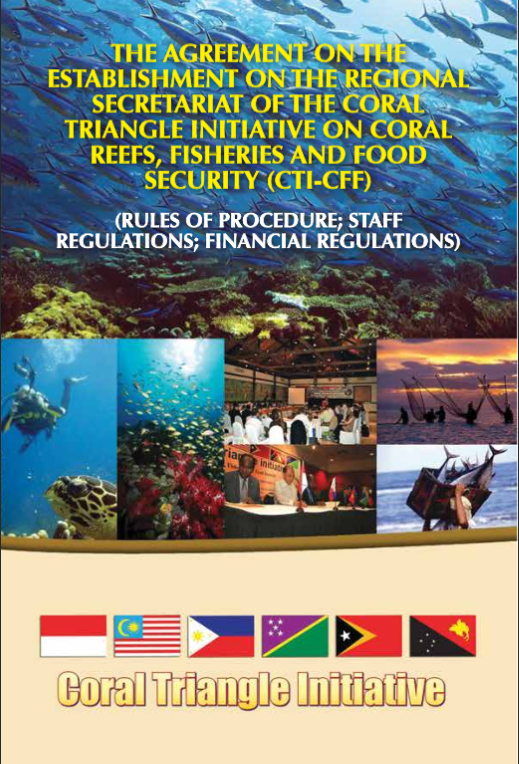| # | Documents | Filesize |
|---|
- Type:
- Policies and Agreements
- Country:
- Indonesia
| # | Documents | Filesize |
|---|
- Type:
- Policies and Agreements
- Country:
- Indonesia
| # | Documents | Filesize |
|---|
- Type:
- Policies and Agreements
- Country:
- Indonesia
| # | Documents | Filesize |
|---|---|---|
| 1 | 402,657 KB | |
| 2 | 425,389 KB | |
| 3 | 207,152 KB |
- Type:
- Policies and Agreements
- Country:
- Indonesia
| # | Documents | Filesize |
|---|
- Type:
- Policies and Agreements
- Country:
- Papua New Guinea
| # | Documents | Filesize |
|---|---|---|
| 1 | 825,350 KB | |
| 2 | 973,733 KB |

At the 10th Senior Officials’ Meeting (SOM-10) in Dili, Timor-Leste, it was agreed that the Agreement on the Establishment on the Regional Secretariat of the Coral Triangle Initiative on Coral Ree
- Subject:
- CTI-CFF Secretariat
- Type:
- Policies and Agreements
| # | Documents | Filesize |
|---|
Climate adaptation planning provides an opportunity to enhance the adaptive capacity of stakeholders across multiple levels. However, reviews of standard top-down and bottom-up approaches indicate that the value of multistakeholder involvement is not fully recognized or incorporated into guidelines. Focusing on provinces in Indonesia and Papua New Guinea within the Coral Triangle region, we present a novel integrated top-down and bottom-up planning approach.
| # | Documents | Filesize |
|---|
Overfishing and habitat destruction due to local and global threats are undermining fisheries, biodiversity, and the long-term sustainability of tropical marine ecosystems worldwide, including in the Coral Triangle. Well-designed and effectively managed marine reserve networks can reduce local threats, and contribute to achieving multiple objectives regarding fisheries management, biodiversity conservation and adaptation to changes in climate and ocean chemistry.
- Subject:
- Marine Protected Areas
- Type:
- Reports and Studies
| # | Documents | Filesize |
|---|
The six Coral Triangle countries: Indonesia, Malaysia, Papua New Guinea, Philippines, Solomon Islands, and Timor-Leste, each have evolving systems of marine protected areas (MPAs) at the national and local levels.
- Subject:
- Seascapes |
- Marine Protected Areas
- Type:
- Reports and Studies
- Country:
- Indonesia |
- Philippines |
- Solomon Islands |
- Malaysia |
- Papua New Guinea |
- Timor-Leste
| # | Documents | Filesize |
|---|
Maintaining ecosystem services of coral reefs, sustainable fishing, and improved food security are the three higher level outcomes of the Coral Triangle Initiative on Coral Reefs, Fisheries and Food Security (CTI-CFF).
- Subject:
- Food Security
- Type:
- Reports and Studies
